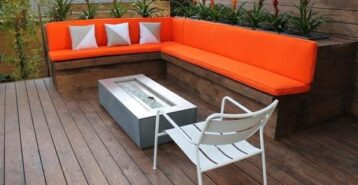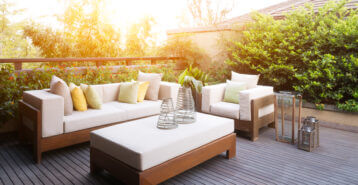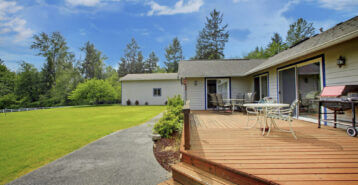Discover the Right Deck Style for Your Space
When designing an outdoor space, the type of deck you choose can have a big impact on both the look and functionality of your home. From layout and location to intended use and overall investment, different deck types offer distinct advantages. Whether you want a quiet retreat or a dynamic space for entertaining, this guide will help you compare options and find the right fit.
If you’re planning to build a new deck or upgrade your outdoor space, understanding the different types of decks can help you choose the right design for your needs. From classic attached decks to stunning rooftop escapes, each deck type offers unique advantages depending on your space, lifestyle, and design goals. Use this guide to explore popular ideas for decking and narrow down the best option for your home.
Factors to Consider When Choosing a Deck Type
Before selecting a deck style, take time to consider these key factors:
- Function: How will you use your deck? Dining, lounging, entertaining, or poolside relaxation?
- Location: Is your home on a slope, in a small backyard, or does it have a second-story entry?
- Design Aesthetic: Do you want a seamless indoor-outdoor flow or a dramatic elevated view?
- Material: Wood, composite, or PVC? Your material choice affects the deck’s look, durability, and maintenance.
- Building Codes: Local codes may limit size, elevation, or attachment method. Always check permitting requirements.
Attached Decks
Attached decks are one of the most common styles. As the name suggests, they are directly connected to the house — usually just outside a kitchen, living room, or back entry. These decks provide seamless indoor-outdoor living and are ideal for dining or entertaining close to the home.
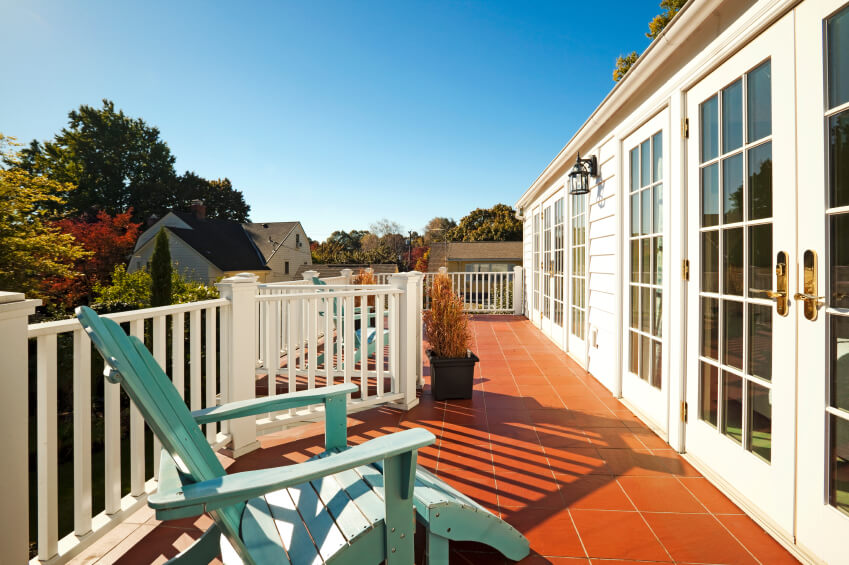
Best for: Traditional layouts, grilling, and easy access to the home.
Pros
- Great for hosting and dining
- Easy to integrate with patio doors
- May increase home value
Cons
- May require ledger board installation and permits
- More complex for homes with uneven foundations
Detached Decks (Floating or Island Decks)
Detached decks, sometimes called floating or island decks, are built separately from the house. These freestanding structures are often placed in gardens, under shade trees, or near a feature like a fire pit.
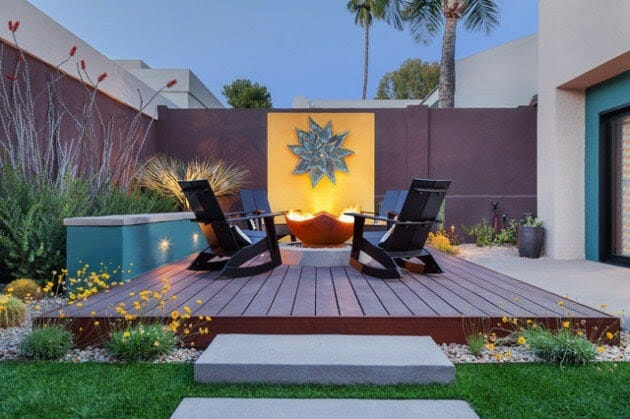
Best for: Flexible placement and creative landscaping.
Pros
- No need to connect to home structure
- Easier to build in uneven or open areas
- Often doesn’t require as many permits
Cons
- May lack the convenience of attached decks
- May require a walkway or path to connect it to the home
Wraparound Decks
Wraparound decks extend along two or more sides of the house, offering plenty of space and access points. These are especially popular in country homes or scenic locations where you want to maximize views.
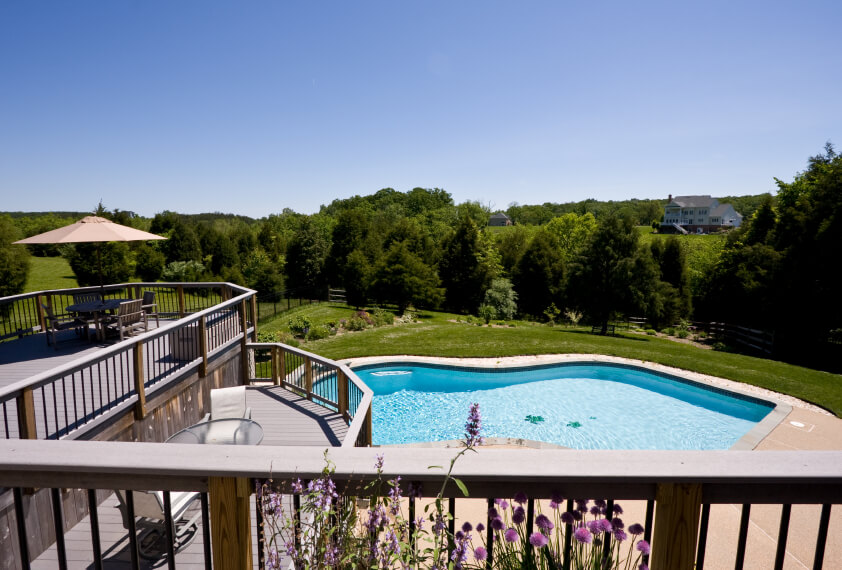
Best for: Expansive views, large homes, and maximizing square footage.
Pros
- Multiple entry points
- Creates a spacious, open feel
- Ideal for enjoying sunlight at different times of day
Cons
- Requires more materials and higher construction costs
- May require structural adjustments to the home
Multi-Level Decks
Multi-level decks feature two or more connected deck platforms, usually at varying elevations. They are great for sloped yards or properties with varying elevation levels.
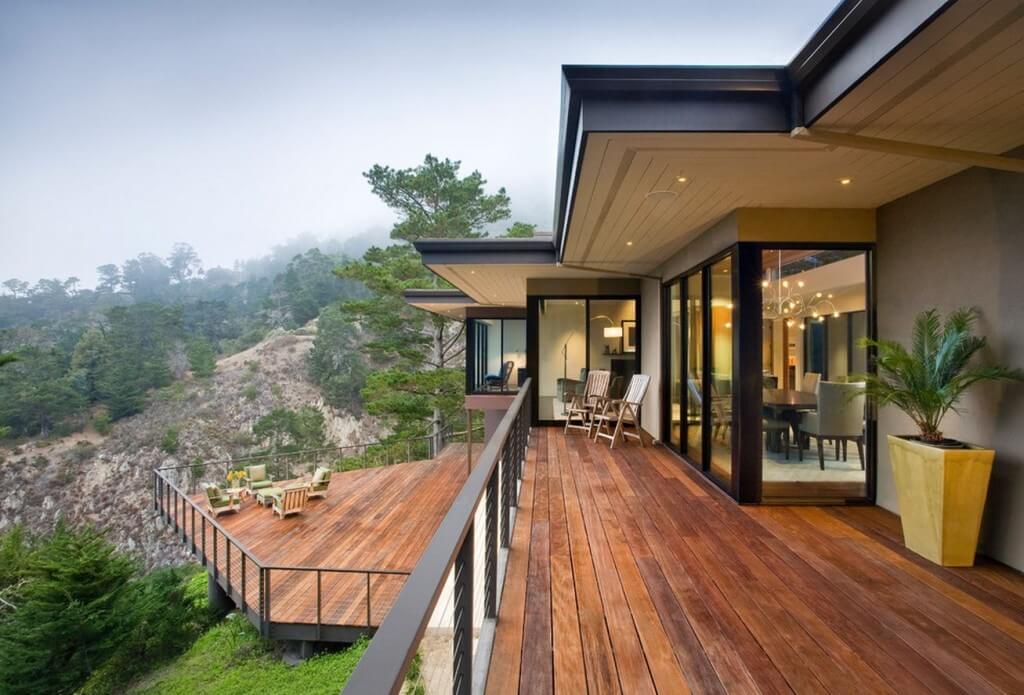
Best for: Hillside properties, large families, or homes with varied terrain.
Pros
- Defines distinct outdoor zones (dining, lounging, play)
- Works with challenging landscapes
Cons
- Higher build cost and complexity
- May require more permits and railing systems
Rooftop Decks
Popular in urban environments, rooftop decks turn unused flat roofs into entertainment and relaxation zones. These decks often include furniture, lighting, and even outdoor kitchens.
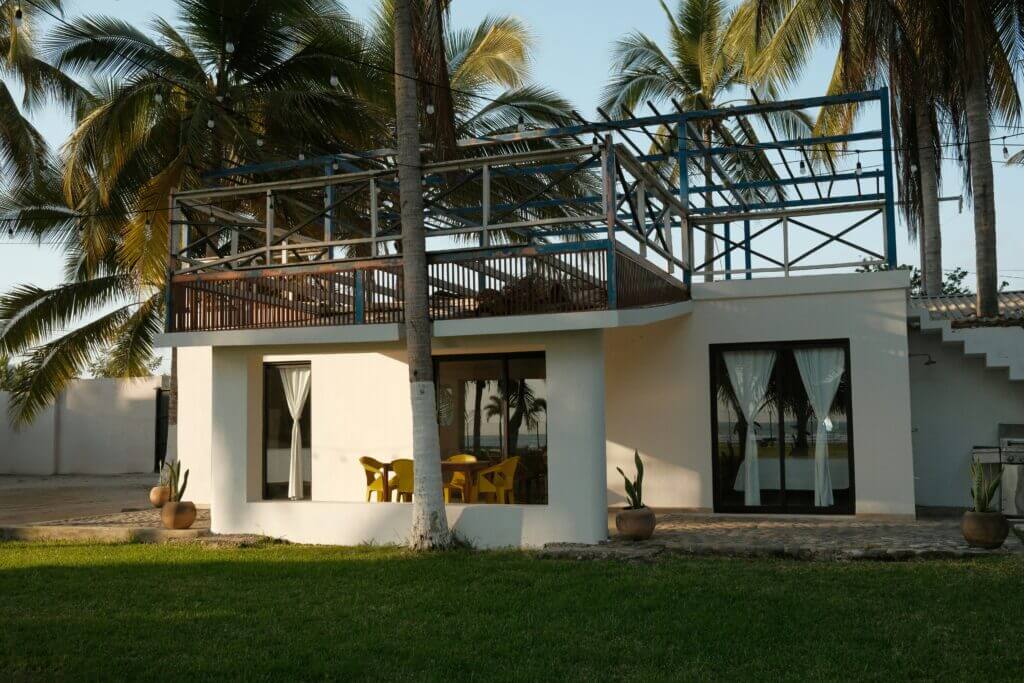
Best for: City homes or flat-roofed garages and additions.
Pros
- Great use of vertical space
- Incredible views and privacy
- Adds outdoor living in tight spaces
Cons
- Requires waterproofing and structural support
- Limited to buildings that can support additional weight
Pool Decks
Pool decks surround an above-ground or in-ground swimming pool and are designed for slip resistance and moisture protection. Materials must handle high foot traffic, sun exposure, and wet conditions.
Best for: Homes with pools or spas.
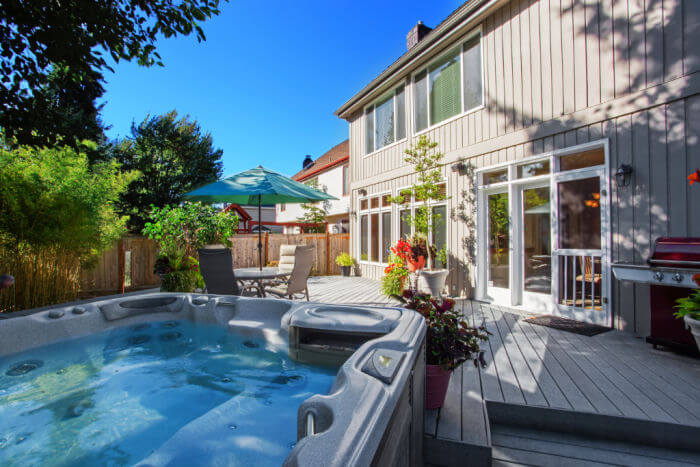
Pros
- Increases pool safety and functionality
- Great for hosting and lounging
Cons
- Requires careful planning for drainage
- Material choice is crucial to avoid slips or heat buildup
How to Choose the Right Deck Type for Your Home
Choosing a deck design is about more than looks — it’s about matching your deck to your lifestyle, budget, and property. Here are a few key questions to help guide your decision:
- What will you use the deck for? Think about whether you want to lounge, host gatherings, dine outdoors, or add space near a pool or hot tub.
- What’s your budget? Simpler designs like detached or attached decks tend to be more budget-friendly, while multi-level and rooftop decks typically cost more.
- How much space do you have? Larger yards may support wraparound or multi-level decks, while urban homes may be better suited to rooftop styles.
- Do you need accessibility features? If mobility or safety is a concern, pool and one-level decks may offer safer, barrier-free access.
- What’s your home’s architecture? A wraparound deck may suit a farmhouse or colonial-style home, while a detached or floating deck may complement a more contemporary look.
How Much Do Decks Cost by Type?
While deck material and labor costs vary widely, deck type alone can influence the overall project budget. Here’s a general breakdown of what to expect based on deck type:
- Most Affordable: Detached (floating) decks are usually the least expensive, typically costing between $15 and $35 per square foot. They’re easier to install, require minimal structural support, and often don’t need permits.
- Mid-Range: Attached and pool decks fall in the middle, ranging from $20 to $50 per square foot, depending on the design and accessibility features.
- Most Expensive: Wraparound, multi-level, and rooftop decks are typically the most expensive, often starting at $40 per square foot and reaching $70 or more per square foot due to their complexity, engineering requirements, and labor demands.
If budget is a top concern, start by choosing a simpler layout, then focus your investment on high-performance materials or small upgrades that enhance longevity and style.
Choosing the Right Deck for Your Home
Whether you’re creating a small escape or an expansive outdoor living space, the right deck type depends on your goals, layout, and budget. Attached and wraparound decks offer convenience and flow, while detached and multi-level designs open new possibilities for challenging or scenic spaces. Rooftop and pool decks provide specialized functions that can elevate your home’s value and enjoyment.
Still deciding? Explore materials and contractor options to make sure your chosen deck type fits your vision and local building requirements. With thoughtful planning, you can create a deck that enhances both your lifestyle and your home’s curb appeal.
